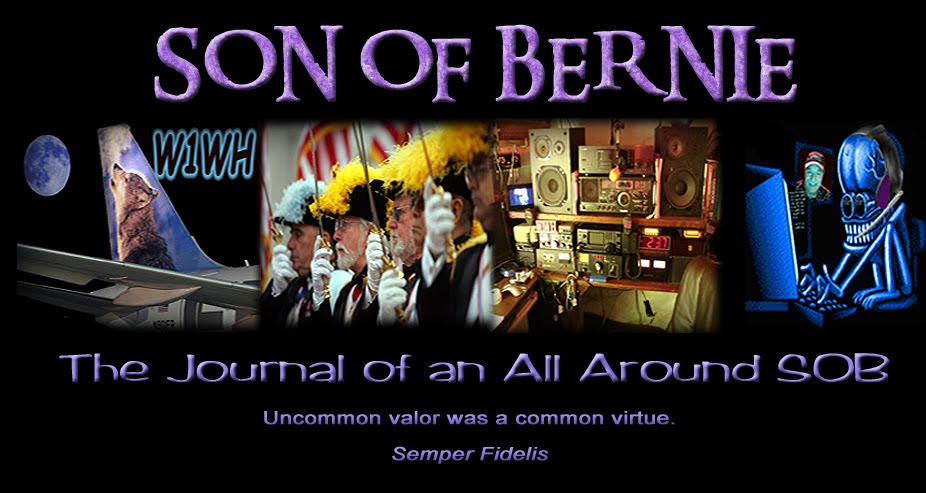On Saturday, June 12 around 1:30 local time, Jim Siemons, AF6PU, of Walnut Creek, California, was checking his e-mail when he received a message from a friend who was concerned that his brother -- who, along with four friends had taken an off-road adventure along California’s famed Rubicon Trail -- had not come home when expected. Siemons’ friend told him that his brother’s group had left on Wednesday with four off-road vehicles in an attempt to cross the Trail.
Siemons forwarded the e-mail to several other club members; within five minutes, he received a phone call from fellow club member Jenny Ward, KI6YBQ, suggesting that he try Amateur Radio to attempt to locate the missing group. The Rubicon Trail connects Georgetown with the west side of Lake Tahoe. Although incredibly beautiful, it traverses some of America’s most challenging off-road trails as it meanders through peaks reaching upwards of 12,000 feet. There is no cell phone coverage on the Trail and very limited official agency radio coverage, making Amateur Radio the only effective means of communication in the area.
Siemons told the ARRL that he grabbed his ARRL Repeater Directory and looked for a repeater frequency and offset that might cover the Rubicon Trail: “I discovered the KA6GWY repeater on 146.805 MHz with a CTCSS tone of 123 Hz in Pollock Pines/Placerville, California, more than 100 miles away from my location. I knew that I was not going to be able to hit that repeater with my handheld transceiver, so I put out a call on Mt Diablo Amateur Radio Club’s W6CX repeater with a frequency of 147.060 MHz with a CTCSS tone of 100 Hz.”
When Siemons heard John Ronan, K3ZJJ, operating on the repeater, he asked for his assistance. “I knew he was at the top of the Oakland hills and would have a fair chance of hitting the Pollock Pines repeater,” Siemons explained. “He agreed to help out and was able to make contact with a couple of hams who were in the vicinity of the Rubicon’s trailhead who offered to help.” Merlin Scott, KC6BFV, was volunteering at the trailhead in the gatekeeper’s hut and had access to an El Dorado County Sheriff’s Office radio. Ronan was able to relay information to a pair of Sheriff Deputies who were on patrol in the area. Siemons said he also requested that a call be relayed via Citizen Band on channel 4, as many off-roaders also monitor and use it to communicate vehicle-to-vehicle.
“I was able to report our efforts back to the families of the lost off-roaders, letting them know that everything that could be done was occurring,” Siemons told the ARRL. “I knew one of the off-roaders was a ham, but I was not certain that he had his rig or knew the local repeater frequencies. All the drivers were experienced, but that only went so far, due to fact that the snow levels are still quite high and the trail is still considered impassible at this time of year.”
By 4 PM local time, Siemons said that hams and off-roaders on both ends of the trail were looking for the group, but due to the normal rough condition of the trail and the heavy snow, search and rescue efforts were slowed. By 7 PM, the Sheriff’s Department determined that it was time to launch a helicopter and search the Trail. “A ham using Citizen Band channel 4 made contact with the group and relayed this via Amateur Radio,” Siemons explained. “The helicopter spotted the missing crew and landed on the Trail at approximately 7:30 PM and determined that everyone was healthy. One of the group’s vehicles was abandoned on the Trail due to a broken drive line, making it impossible to drive through the tall drifts of snow.” Hams and the Sheriff’s Department monitored the group’s progress until their exit from the trail. Siemons said he kept the families updated as to the off-roaders’ progress.
“I want to thank the efforts of the Deputies and the dispatchers of the El Dorado County Sheriff’s Department, the amateurs of the Mt Diablo Amateur Radio Club (MDARC) and their W6CX repeater and the amateur operators of the Rubicon Trail and their KA6GWY repeater. This event ended well, but even if it had gotten a lot rougher, it would have been better than it otherwise would have been because of Amateur Radio!”




No comments:
Post a Comment